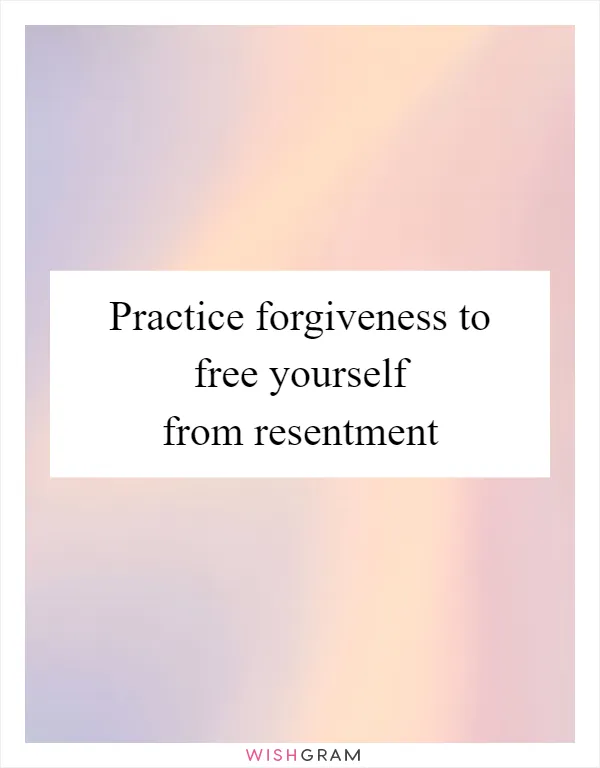Practice forgiveness to free yourself from resentment
Resentment is a heavy burden that many of us carry, often without realizing the toll it takes on our well-being. It can consume our thoughts, drain our energy, and hinder our personal growth. However, there is a powerful antidote to this toxic emotion: forgiveness. By practicing forgiveness, we can liberate ourselves from the chains of resentment and embark on a journey of self-improvement.
Forgiveness is not about condoning or forgetting the wrongs done to us; it is about releasing the negative emotions associated with those experiences. When we hold onto resentment, we allow the past to dictate our present and future. It becomes a constant source of pain, preventing us from moving forward and hindering our personal development.
By choosing to forgive, we break free from this cycle. We acknowledge the pain caused by others, but we also recognize that holding onto it only perpetuates our suffering. Forgiveness is an act of self-compassion, a gift we give ourselves to heal and grow. It allows us to reclaim our power and take control of our emotions, rather than letting them control us.
Practicing forgiveness requires courage and a willingness to let go. It involves acknowledging our own vulnerabilities and accepting that we cannot change the past. It is not an easy process, but the rewards are immeasurable. When we forgive, we create space for personal growth and self-improvement.
Forgiveness opens the door to self-reflection and introspection. It allows us to examine our own role in the situation and take responsibility for our actions. By doing so, we can learn from our mistakes and make positive changes in our behavior. It is through this process that we evolve and become better versions of ourselves.
Moreover, forgiveness fosters empathy and compassion. When we forgive others, we develop a deeper understanding of their humanity and the complexities of their own journeys. This empathy extends beyond the act of forgiveness itself and permeates our interactions with others. It enables us to build healthier relationships, resolve conflicts, and cultivate a more harmonious environment.
